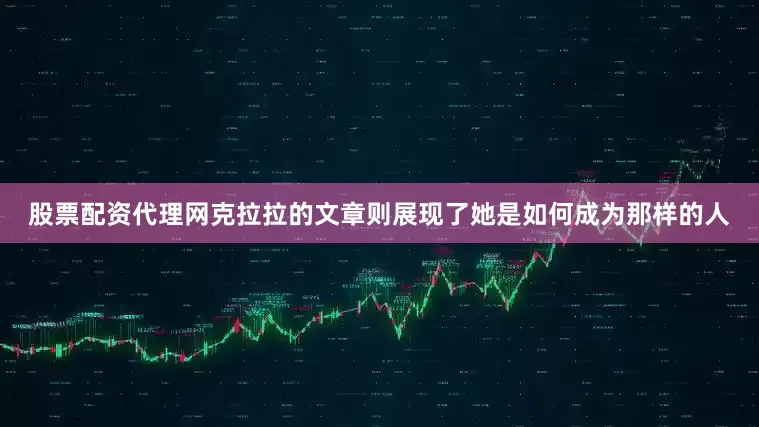
很多家长和学生都在问:
“写文书是不是就得写苦难?”
“是不是得上天入地、拯救世界、搞科研?”
“是不是要显得自己比别人都成熟?”
其实,看了这些哈佛录取范文之后,答案是:不!一!定!
你可以写一本书带来的信仰危机,也可以写一场卧室大改造带来的自我认知变化;
你可以诚实讲述如何在心理迷宫里筑墙自保,也可以描绘你如何用17盆植物与世界达成和解;
你甚至可以写一封不靠Google翻译的家书,是如何跨越千山万水,把祖孙之间的距离缩短到零......
你可以写一本书带来的信仰危机,也可以写一场卧室大改造带来的自我认知变化;
你可以诚实讲述如何在心理迷宫里筑墙自保,也可以描绘你如何用17盆植物与世界达成和解;
你甚至可以写一封不靠Google翻译的家书,是如何跨越千山万水,把祖孙之间的距离缩短到零......
这些故事没有一个是完美的,甚至没有一个是“成功”的,但它们都真实、有感、有洞察。
展开剩余97%这篇带大家去分析了十篇哈佛申请范文,看看什么样的写作才是“能进哈佛”的写作?
Claire's Essay
上下更多
👇
In my vision I focus on a lone front tooth backdropped by a black abyss; thin lips dance around it in motions forming words, yet I can’t seem to hear them.
In the kitchen behind my grandfather sits his definition of luxury — a now stale and cold Filet-o-Fish from the Beijing McDonald’s. American basketball plays on the television across from where we’re sitting on the sofa; players’ shoes squeak and balls bounce louder in my ears than those words. In this moment, his Mandarin goes in one ear and out the other. I don’t listen the way I do when he’s screaming at my mother, a bitter, blind rage fueled by undercurrents of fear and “I miss you.”
My focus blurs, and the tooth disappears. Basketball fades to silence, and I’m on the airplane home to America. We’re separated once more by an ocean and three thousand unspoken miles. It’s a whirlwind; five years pass, and my few apathetic summers in China are over before I can blink twice.
The last clear memory I have is waking up on my thirteenth birthday to my dad handing me the landline kept for international phone calls: “Waigong has something he wants to read to you.”
It is a poem that he had written about me. Through the phone, I could do nothing but hear his voice, static worsening the Mandarin already slurred by missing teeth. The poem says everything he loved about his granddaughter, everything he saw in her, despite barely knowing her. It is a reflection of last dreams, visions, and hopes of his own.
He was gone not long after that, once more turned to forever.
It wasn’t until I found myself chancely entrenched in poetry because of a mandatory school competition that I began to think deeply about this disconnected relationship. Poetry Out Loud’s anthology introduced me to hundreds and hundreds of poems, and I felt like a hungry child at a buffet. When I discovered “Old Men Playing Basketball” by B.H. Fairchild, I saw tired arms and shaky hands as a pure geometry of curves, hobbling slippers as the adamant remains of that old soft shoe of desire. In words, I was safe to miss my grandfather for all the things that made him human. For the first time in my life, I began to realize that I might have a love for beautiful words that ran deep in my blood, a love that couldn’t be lost in translation.
On that makeshift podium in the school cafeteria my sophomore year, “Old Men Playing Basketball” becomes “Waigong Playing Basketball.” I’m taken back to that sofa in Beijing one more time, where he takes my small hand into his tremoring one covered by gray-brown patches of melasma, where he tells me, “You are a gift, a wonder. You are a hu die.” Butterfly: my Chinese name. Born to one day fly.
But it is no longer his voice I hear. It is my own— crisp and clear, raw and strong. The poem becomes the glass wand of autumn light breaking over the backboard, where boys rise up in old men. I see the whole scene this time, not just tooth and abyss. I hear every word.
Perhaps I will never be able to know my grandfather beyond his love of basketball and poetry, or hear his voice read me another poem. But when I am stirred by beautiful lines or liberated by my pen on paper, I know I am one of two same hearts, forever bound together by the permanence and power of language.
I am a vessel in flight, listening, writing, speaking to remember histories, to feel emotion, to carry forth dreams and visions and hopes of my own. My grandfather becomes an elegant mirage of a basketball player, carried by a quiet grace along my trail of spoken words floating upwards toward heaven.
分析:在语言和亲情中找到归属感
#跨文化隔阂、祖孙情、诗歌、语言、身份认同
亮点解析:
有些文章会告诉你一个人是怎样的人。克拉拉的文章则展现了她是如何成为那样的人。
这篇文章突出之处,不仅在于她用鱼和新生之间的比喻,也不仅仅在于她将移民和生物学这两个招生官经常遇到的主题联系起来的故事,更在于她如何将这些熟悉的想法融入到个人生活中。在于她如何轻松地描述不适,以及如何真诚地捕捉语言障碍带来的尴尬和孤独感。一个不够深思熟虑的作家可能会简单地说:“学英语很难。”然而,克拉拉向我们展示了她如何运用富有创意的幽默自嘲,同时通过海绵宝宝的重播、文字游戏和对标注图表的迷恋,展现她独特的技能、缺点和优势。这正是招生官想要看到的:一种成熟的反思方式,能够将故事生动地展现在屏幕之外。
她不仅谈论韧性——她还向我们展示了韧性的起源,以及艺术和科学如何成为理解事物的一种方式。她的文笔生动活泼,却不浮夸。结尾处,当她写下“你会找到你的水”时,这句话落到了实处。这不仅仅是一个简洁的结尾,而是一个静谧而慷慨的提醒:成长不必喧嚣,才是真实的。
Alexander's Essay
上下更多
👇
The mouthwatering scent of beef broth brought back a flood of childhood memories as it wafted around me. After a 12-hour drive from Florida to Texas, the familiar smell meant I was in ""bep cua bà"", or ""grandma's kitchen"" in Vietnamese. Every summer when my family visited my grandparents' house, my grandma always had a steaming pot of pho ready for us when we arrived, and this time was no exception. For my family, pho was more than a Vietnamese delicacy: it symbolized bringing us together over a warm, hearty meal. This specific visit, however, came with a change of perspective; as a young adult who was now conscious of his cultural roots, I wanted to learn more about my heritage by learning how to cook pho from my grandma.
As she boiled the water, my grandma stressed to me, ""Every bowl of pho needs a strong foundation: the broth."" Without a good broth, she explained, none of the other ingredients mattered. As I stood over the boiling pot, I thought about my own foundation: my family. My parents immigrated to America after the Vietnam War with nothing and had to work tirelessly to accomplish the celebrated ""American Dream"". From taking me to a 7 am student government fundraiser or a 10 pm baseball game in a city five hours away, I would not have been able to participate in these activities, which I consider an integral part of my identity, without their support. Being fortunate enough to have a strong foundation in my life has allowed me to be a strong foundation for others. For example, as an upperclassman on my varsity baseball team, I strive to be available for my teammates. Last season, when a younger teammate was struggling in a few games, I stayed back after practice to work with him on his fielding before driving him home, even though he lived almost an hour away. This small gesture was a reflection of my attempt to build a strong foundation for others.
As I watched the broth simmer in a giant pot that my grandma had continuously stirred for two days, she imparted another bit of wisdom onto me: making a great bowl of pho was also all about balance. Simply taking a great broth and indiscriminately adding to it would not suffice; each of the ingredients had to be in perfect balance with each other. Balance was never really something I considered until recently, when I experienced the struggle that can come from its absence. When I suffered a stress fracture in my lower back a few years ago that left me unable to play baseball for the foreseeable future, I felt as if suddenly a major part of my identity had been stripped away. I struggled with this new reality for a while until I realized I could fill this temporary void by acting as a mentor for my younger teammates. Additionally, with my newfound spare time, I was able to further develop my interest in Mu Alpha Theta, which gave me a new, enriching opportunity to compete in mathematics competitions. By the time I was finally cleared to play, I had developed a fresh appreciation for the importance of maintaining a balance among all the activities I did, as I had experienced firsthand the empty feeling of having this balance stripped away.
While putting the finishing scallions in the bowl, I reflected on the delectable meal I helped create and realized that what had started out as me simply wanting to learn more about my heritage became something more poignant: an introspection. Although there may not be a single perfect recipe for pho, by applying my grandma's cooking principles in my everyday life, whether it be in baseball, my volunteer lab experience, or my service trip to Guatemala, I hope to be able to make a ""bowl of pho"" that is perfect for me.
“越式鸡汤”:从牛骨高汤到人生基石
#家庭、文化根源、责任感、心理韧性、平衡
这篇文章以祖母家的越南牛肉粉(Pho)为线索,将文化、家庭与成长串联起来。起初他只是想“学做一碗面”,却在两天的熬汤与调味中,学会了人生的三件事:基础、平衡、成长。
写作中通过“熬高汤”隐喻家庭是他的根基;“平衡食材”映射自己在运动受伤后的心理重建;而最后将“这碗面”变成他人生体验的象征,升华主题。整篇文章节奏稳、内容实、情感真,是典型的美式写作模板。
亚历山大的文章对身份认同、家庭和个人成长进行了深刻而感性的反思。他以制作越南粉作为中心隐喻,巧妙地将自己的越南传统与根基、平衡和韧性等更广泛的主题联系起来。“奶奶的厨房”(bếp của bà)的意象增添了温暖和独特性,将叙事置于富有意义的文化语境中。最引人注目的是亚历山大将个人经历转化为普世洞见的能力。
他应对逆境指导队友,以及在运动受伤后重新发现对数学的热情展现了他沉静的领导力和适应能力。这些时刻真实存在,并体现了他践行的价值观。文章结构连贯,从肉汤到平衡,再到内省,主题丰富。然而,一些过渡可以更流畅,一些短语略显重复或抽象。结论部分虽然感人至深,但如果能用更具体的个人形象来结束,而不是用“完美碗”的比喻来结束,或许会留下更深刻的印象。
总的来说,这是一份真诚而引人入胜的个人陈述,体现了深度和个性。经过轻微修改,提升了清晰度和节奏感,Alexander 的论文定能给招生官留下深刻的印象。
Barry's Essay
上下更多
👇
I woke up one morning to the usual noise in the kitchen. “That plate of porridge is mine,” my brother yelled outrageously at my sister, “leave it or else I will beat you up.” Food scrambles and fights were order of the day in the family I was raised. The size of one’s meal would be determined by one’s age. You had to fight for food at times, or else hunger would eat you alive. Living with ten siblings in a polygamous family is not the definition of tranquility. However, I have learned more from this revolving door than I could have been taught in solitary silence. Beyond chaos, there is a whisper that teaches the benefits of unselfish concern.
My mother was a teacher, but her salary could not sustain the big family. Almost every day, she would wake up early in the morning before work and go to the fields. My parents were shadowy figures whose voices I heard vaguely in the morning when sleep was shallow, and whom I glimpsed with irresistibly heavy eye-lids as they trudged wearily into the house at night. We sat together as a whole family on special occasions. After a bumper harvest, my parents would sell their crops in the neighborhood. I vividly remember my mother counting proceeds from the crop sale, her dark face grim, and I think now, beautiful. Not with the hollow beauty of well-simulated features, but with a strong radiance of one who has suffered and never yielded. “This is for your school fees arrears,” she would murmur making a little pile. “This is for the groceries that we borrowed from Mr Kibe’s store,” and so on. The list was endless. We would survive at least for the present.
My father instilled in me the importance of education. I would see the value of education every time I shook hands with him; the scratches and calluses from the field in his hands were enough motivation. After every award I received, he would firmly shake my hands as a sign of profound pride. My tacit prayer was to ease his pain one day. Unfortunately this was never to come true, he died on 5 February 2016 in a car accident, only a week before I received my IGCSE O LEVEL results and I had attained 14 straight A grades, standing out to be one of the top performers in the country. After my father’s death, his brothers took everything that he had acquired.
Inevitably, circumstances forced me to take a break from school in January 2017 and bear my share of the eternal burden at home. I had to take care of my mother whose health was deteriorating. I would spend the day doing household chores, and the nights were times of intensive study. It was on my mother’s deathbed when I was fully convinced that she was a seasoned fighter. “Barry,” she called me, “I am not going to die till you finish school.” In order not to disillusion that extraordinary faith in her voice, I assured her that she was going to live. Unfortunately, she succumbed to death on the 15th of March 2017. I “died” with her. My belief in the God she had ardently prayed to till the time of her demise was shaken.
Already laid waste by poverty and pain, I went back to school through the generosity of strangers. School became a battleground for victory. I came back to life determined than ever before. I out-performed the country boys who mocked my struggle. I went on to win accolades in the National and Regional Mathematics Olympiads and was awarded the Higher Life Foundation Scholarship that was going to pay my fees throughout high school.
Today, I am an epitome of a black, double-orphaned, African boy who lost everything he ever valued, but refused to give up on his dream.
“非洲家书”:从混乱中写出清醒
#多子家庭、教育改变命运、丧亲之痛、奋斗与尊严
Barry的故事堪称“命运击打下的成长史”。他出生在一个有十多个兄弟姐妹的非洲家庭,父母为供养家庭早出晚归,饭桌上的“争夺战”几乎成了生活常态。面对贫困、父亲车祸离世、母亲重病离开人世……Barry没有被击倒,反而在苦难中孕育出非凡的毅力和责任感。
他用“母亲分配卖粮食的钱来交学费”的场景写尽了一种深沉的爱,也通过科学奥林匹克奖项、助学基金的获得,向我们展示了“出身不决定一切”的力量。
令人欣喜的是,巴里文章的其余部分至少和开头一样引人入胜。无论他是以一种比最刺耳的葬礼哀号更响亮的、低调的语气传达父亲去世的消息,还是在母亲平凡地计算家庭开支时停下来欣赏她美丽的容颜,我们在阅读时都会进入巴里的思想,始终感受到他的存在。即使在数字页面上,他的智慧指纹也清晰可见。
Claire's Essay
上下更多
👇
Of the memorable moments in my life when I have discovered one of my passions, almost all of them involve my bright yellow Crocs. Buying rubber shoes in such a conspicuous color was not a spontaneous decision; it took me two months to choose. I had been stalking crocs.com, clicking between the color options, and asking for the unsatisfying opinions of friends before what felt like my rom-com “meet cute” moment: a girl wearing a black tracksuit walked past me in Crocs the brightest shade of yellow I had ever seen. That very week, I opened my laptop and decisively purchased a size 8 pair of “Lemon” Crocs. Ten business days (and two months to build up the courage to wear my eye-catching kicks out in public) later, my self-discovery began.
I was wearing my Crocs when I recognized the importance of activism in young communities. This revelation came on a Saturday in March 2018. I took a 25-minute train ride down to Washington D.C. to participate in the March for Our Lives rally—my first protest. For all 25 anxiety-inducing minutes, my heart raced and my muscles tightened as I tried to ignore the probing stares from strangers wondering why I decided to pair yellow shoes with a green coat.
But my fears (both Croc and non-Croc related) quickly dissolved as I stood alongside activists that were my age; in front of a stage dominated by leaders that were my age; making me realize that the only thing stopping me from being a student activist, at my age, was effort. The young voices calling for change inspired me to step into my responsibility to use my voice to help those whose voices are being suppressed. I stood there for one hour, but what I saw was enough to encourage me to actualize my vision for a world where students are driven to engender social change through service. So, five months later, I co-founded The Virago Project (TVP), a student-led organization focused on building a community of activists like the ones I stood alongside in March. A “virago” is a woman displaying exemplary qualities, but the term has been twisted to demean assertive women. From its name to its activities, TVP is about redefining leadership.
After my day in D.C., I wore my Crocs to every student meeting TVP held. I wore them as we sold 150 handmade bracelets to raise funds for a local children’s home and again when we posted colorful cards with encouraging messages all over my high school. Walking into rooms full of ambitious student leaders using TVP as a jumping-off point for their own service projects, I beamed as their gaze met my sunny shoes and then shot up to my equally cheery smile.
“Dunni, why do you wear such noticeable shoes when you lead these meetings?” asked one of our activists.
Pleasantly dumbfounded, I could only respond with a curious smile—it’s not often that frivolous items lead to unintentionally philosophical inquiries. So, I held my tongue until the answer struck on a late-night in November 2019.
I wear such noticeable shoes when I stand in front of other student leaders because I want to model the kind of leadership that is as smile-inducing, deliberate, and visible as my Crocs. TVP has trained me to be, above all, altruistic, and I love that I get to learn and model this with a generation of world changers. It took me two months to decide I wanted a pair of sun-colored shoes but only two seconds and a model to realize that I desired the option I’d once overlooked. Now, I realize that, to curious strangers, I am the girl walking past in Crocs the brightest shade of yellow they have ever seen. And I am delighted with the thought that I could be the one to break someone’s cycle of indecision and social apathy.
分析:青春政治启蒙
#自我表达、学生运动、领导力、符号叙事
Dunni的故事从一双亮黄色的Crocs鞋开始,既幽默又意外。她用这双鞋讲述了自己第一次走上华盛顿街头、参与“为我们的生命游行”学生运动的经历。黄色鞋子本是对“不合群”的恐惧象征,后来却成为她作为青年领袖的标志:她穿着它组织项目、做公益、带领学生实现影响力。
她共同创办了以“女性力量”为主题的Virago项目,鼓励更多人参与行动、发声、改变世界。最终她意识到,那些“显眼的选择”也许正是别人生命中的“灵感闪现”。
亮点解析:
极具辨识度的象征物(Crocs):从物品到理念的转化自然、精彩。
将政治参与转化为个人成长:不是空喊口号,而是通过行动带动他人。
语言风格亲切、节奏流畅:轻松幽默之中不失深度,非常“美式”。
Isabelle's Essay
上下更多
👇
Breakfast after church is a Sunday staple in my family. We’re not allowed to eat beforehand, so right after Mass ends, my sister and I race to the bagel shop only to inevitably wait in a long line. Often when we reached the cashier, we’d find they were out of plain bagels. It was a perennially difficult decision: pick from an assortment of non-plain bagels, or wait another 20 minutes for new plain bagels.
People’s bagel choices tell you everything about them, and I was a plain bagel girl through and through. Even when faced with 20 extra minutes of hunger, I decided to leave the sweet bagels for the adventurous, the savory for the straightforward, and the “everything” for the indecisive. I came for plain bagels, and I would get them, no matter the wait.
After a long wait, the warmth of the freshly-baked plain bagels radiating through the paper bag assured me my patience was worth it. Being a plain bagel girl means knowing exactly what you want—no more, no less. It means that I’m in control of my decision-making and always end up satisfied.
In senior year, my teacher graciously brought bagels to our class. Upon approaching the bag, however, I found there were no plain bagels left. Instinctively, I retreated. But my teacher stopped me and advised that I break from my comfort zone. Reluctantly, I chose an egg bagel, preferring its odd yellow shade to the surrounding sweeter variety (who wants a french toast bagel anyway?). My first bite introduced me to a new world: this sweet and savory egg bagel flawlessly balanced the worlds of the adventurous and the straightforward.
My willingness to try an egg bagel didn’t lead to a phase of food experimentation, but it did make me see that I could be more spontaneous than my plain bagel self might allow.
Before high school, you could never spot me on a dance floor; I much preferred to watch from the audience. But in my freshman year, I joined the dance department of my school’s annual production of S!NG on a whim.
As soon as I tried the first move, I knew the decision was worth it. I enjoyed diligently practicing routines and adding my own flair, satisfying my tendency to prepare thoroughly while also fulfilling my desire to explore the realm of dance. Eventually, I excelled so much that the directors chose me as their successor—a position that has strengthened me as a dancer, leader, and person. Though I relished my newfound sense of spontaneity, my plain bagel girl roots helped me to effectively manage others’ dancing. I tirelessly choreographed and re-choreographed each step and count of a routine, no matter how long the detailed revisions took. During practices, I analyzed the dancers' movements and refined them to what could only be described as plain bagel perfection.
Sometimes the moments when I thought I needed to be in control to be successful were when I needed to be more spontaneous. In my first year being director, I was unfamiliar with managing a multitude of variously skilled dancers. Shedding my fear of being an inexperienced leader was difficult, but I soon learned to open myself to others’ advice about describing moves and maintaining the beat. Together, through sometimes spontaneous practice sessions and spurts of inspiration, we worked to adapt the choreography to accomodate all dancers.
I revel in the contradiction that is my simultaneous meticulousness and spontaneity: my egg bagel epiphany. I can count on myself to prepare thoroughly to optimize my potential, no matter how long it takes. But I can also trust myself to make the most of the unknown and stay true to myself while doing so. It’s what makes me multidimensional; it makes me a young woman no longer defined by her bagel choices but rather by her versatility and what she can do with it.
“贝果哲学”:在控制与冒险之间跳舞
#选择、自控力、领导力、突破舒适圈
Isabelle把自己比作“plain bagel girl”(原味贝果女孩),从小做事一板一眼、偏好熟悉事物。然而一次被迫吃下“蛋味贝果”的经历,让她突然意识到:原来冒险也可以美味,人生不必一成不变。
从那之后,她大胆尝试加入舞蹈社团,从台下走向台上,从参与者变成导演。在导演舞蹈演出时,她依旧延续“plain bagel”的细致完美风格,但也懂得加入即兴与弹性——两种性格融为一体。
亮点解析:
类比巧妙:用“贝果口味”隐喻人生选择和性格倾向,既新颖又贴切。
从细节到升华:从早餐选择讲到领导力建设,线索清晰且递进自然。
个性立体:展示了自我认知的过程,而不是从一而终的“完美人设”。
Olivia's Essay
上下更多
👇
When I was little my grandfather taught me the German word Waldeinsamkeit, the feeling of being truly alone in a deep forest. “Forests are special in Germany,” he explained. “In Florida...it’s swamps,” pointing to the brackish pond behind his house.
Back then, I knew only that he was a scientist, and that my mom’s forehead furrowed when he was mentioned. It was years before I saw him again, and many more years before I learned that, despite the silence of forests and families, no one is truly alone.
I always felt that science was in my blood. In 8th grade, I attended the Summer Science and Engineering Program at Smith College. I left hoping to study Chemistry--that was what my grandfather had taught.
So in high school, I emailed dozens of labs…and received one positive response, from a plant lab. Plants? They didn’t move or talk; they’re boring, I thought. And I had accidentally killed every plant I’d touched--including a fake one I’d dropped. But Dr. Yanofsky encouraged me. He also taught me that most of what I’d assumed about plants was wrong.
New research suggests injured Douglas firs send distress signals to nearby pines through a series of mycorrhizae, a fungi which acts like a plant internet. In other words, trees “talk” to each other and are “friends” during hard times--they help injured trees by sharing resources. If we listen at the right frequency, we can literally hear forests communicating.
In Dr. Yanofsky’s labs, I began using CRISPR-Cas9 to explore two genes in Arabidopsis thaliana. It took years, but my engineered plants produced nearly three times the fruit of the wildtype average, with clear applications toward world hunger. I entered my project in the Greater San Diego Science and Engineering Fair (GSDSEF), where I won First Place and Sweepstakes, sending me to the International Science and Engineering Fair (ISEF), where I became a Finalist.
The next year, I took these principles to the Garcia Scholars program at Stony Brook University to study nanotoxicity. I’ve learned that people across the globe speak a universal language of science, including bad puns. I’ve also learned that everyone had a mentor.
That’s why I helped launch the Student Leadership Board of GSDSEF. Traveling to dozens of schools, leading monthly Saturday workshops, I saw classrooms without science equipment. I met kids whose parents couldn’t afford even modest science fair entry fees.
So I created Science Fair Buddies, a mentoring program at a middle school where most students receive free lunch. I persuaded a local company to provide financial support, and recruited science fair alumni as mentors. We hold workshops when late buses are available. I’ve learned to look and listen in ways I hadn’t before. “Will there be snacks?” often means “I haven’t had a meal today.” Kids make formal presentations in t-shirts because that’s their only shirt. Seats for parents at award ceremonies are often empty. Taylor, a 5th grader with orange hair, comes with her grandfather; he’s her primary caretaker. Many kids seem to be their own caretakers.
In the last year, in an awkward conversation, I learned my own mother was one of these kids. I learned my grandfather was an alcoholic. That she spent afternoons stranded at bus stops. That he once ran over her dog. That he broke down a neighbor’s door to drag her back home. That the swampy pond behind her house was her designated meeting spot for friends to comfort her.
Last year, we traveled across the country to bring him home to live with us. He was alone, and suffering from progressive dementia. Some days he speaks nonsense, asking for “blue noses” for lunch. But yesterday he said his hobby was “finding truth where it may not always be obvious.”
Forests may be peaceful, but they’re not lonely, or even silent. Trees—and people—are always sharing resources in ways that remind us we’re never truly alone.
科学少女的沉默革命
关键词:家庭创伤、植物研究、CRISPR、科学公平、代际和解
Olivia从一个德国词语“Waldeinsamkeit”(森林孤独感)说起,逐步揭开了自己对家庭、科学、社会的理解。她从植物实验做起,研究“树木如何通过真菌网络彼此传递能量”——这个过程像极了人类之间默默相助的隐形网络。
她用科学改变世界,也用科学回应自己过去被家庭伤害的记忆:酗酒的外祖父、童年被抛弃的母亲……而在多年后的反转中,她亲自将年老患痴呆的外祖父接回家,完成一次和解。森林不再是沉默的,她自己也不再是“孤独的”。
亮点解析:
多层叙述结构:植物→研究→公益→家庭→情感反转,层层推进,内容丰富。
科学研究不仅是“技术”,更是“关怀”:她关注的不只是成果,而是科学能否照亮边缘群体。
结尾极具感染力:回到主题,点出“森林从不沉默”,令人动容。
Jinna's Essay
上下更多
👇
It’s terrifying how much we can get from Amazon nowadays: groceries, clothes, books, and crises of faith are all just a click away.
After Audible thanked me for listening to The Most Dangerous Branch: Inside the Supreme Court's Assault on the Constitution by David Kaplan and The Brethren by Bob Woodward and Scott Armstrong, I wanted to cry, scream, and march to Washington to shake answers from Chief Justice John Roberts.
My emotional whirlwind burst from the dichotomy between reality and my expectation of it. Growing up, I knew the judicial branch as the apolitical arbiter of constitutional law and the bias-blind defender of civil rights. With fear across the nation rising as fast as the global temperature, I was sure the best way to change the failing status quo was through the courts. I dreamed of becoming a lawyer to advocate for justice and to help my country prosper. My ambitions sprouted from the ideals of public service ingrained into me at school and at home, and my goal hinged only upon the judiciary’s mandate to protect our freedoms. My dream was purposeful and straightforward.
But 37 hours of audiobook rewrote all my beliefs in the judicial branch.
The Supreme Court: apolitical arbiter and bias-blind defender? No. Rather: potentially politicized, petty, proud, and irrational. Partisan politics dance about the Justices’ Conferences. The Constitution and personal biases govern rulings. Most rights supposedly afforded by the Constitution are interpretations, not explicit clauses, of it. For example, Chief Justice Warren Burger manipulated case assignments, so Justice Potter Stewart tattled on him to Woodward and Armstrong in retaliation. The right of the judiciary to strike down laws deemed unconstitutional is derived more from Marbury v. Madison than from Article Three. Justice Harry Blackmun based his majority opinion in Roe v. Wade on the rights of the doctor to practice. Stare decisis is optional, as is judicial restraint.
I felt sick. I had worshipped the courts as the perfect forum for change, always upholding truth, equality, and scholarship; I saw them as the eventual birthplace of solutions to gun regulation, climate crises, gerrymandering, immigration, and social inequality. I did not want to acknowledge courts could be anything but perfect.
Desperation drove me to keep listening, but with every new case I covered, the clearer it became that I had worshipped an impossibility. After finishing Jeffrey Toobin’s The Nine, I finally admitted that, prior to these books, I had known nothing. Perhaps that epiphany should have terrified me, but it did quite the opposite.
It was liberating.
Socrates once wrote that true knowledge was in knowing that you know nothing. I couldn’t agree more: once you know you’ve hit wisdom rock bottom, you can be reckless with your curiosity because you only have everything to gain.
Since that epiphany, I have been gleefully chasing infinity. Even if my capacity to learn is finite, my curiosity is not. The history of the courts, the ethics of judicial restraint, the politics of judging, the rhetoric of opinions, the intersectionality of all of the above and more… there is so much to explore.
For the record: I purchased those audiobooks on a whim. I was not looking for anything more than a fascinating nonfiction read. But they have plunged me into an exhilarating, all-consuming, fully unpredictable adventure, one that stretches back to our nation’s founding and far into our future. While these books initially upset me by revealing the imperfections of the judicial branch, they showed me a whole undiscovered history and future at my fingertips. Rather than smothering my dreams of public service, they fanned the flames; now, my dream of public service is fueled by my passion to serve and to learn.
And I’m ready to chase it.
Jinna的文章是求知欲、个人反思和真实声音的杰出典范。从巧妙引人入胜的开场白到深思熟虑的结尾,Jinna巧妙地带领读者踏上一段探索、幻灭和重拾目标的旅程。文章深入探讨了美国最高法院的运作方式,不仅展现了他们对正义的热情,也展现了他们勇于质疑长期持有的信念并从中成长的决心。
Jinna的文章之所以格外引人入胜,是因为他们能够将复杂的理念与通俗易懂、感人至深的故事叙述相平衡。文章引用《最危险的分支》和《九人》等书籍并非为了吸引读者,而是为了展现他们对复杂问题的真诚思考。他们的语气自信满满,偶尔幽默风趣,并始终保持着深刻的反思。
Jinna的文章也捕捉到了一段意义深远的转变。他们没有固守理想主义,而是拥抱复杂性,展现了韧性、适应能力和求知欲,这些品质正是招生委员会所看重的。最后传达的信息是,幻灭感逐渐被更深沉、更扎实的公共服务热情所取代,这股力量令人振奋。
Carrie's Essay
上下更多
👇
I am a builder. No. I am a seasoned architect. My tools are foreign to the realities of others but mundane by my standards. I don’t compose the perplexing and unique structures that most think of when the word architect is mentioned. Matter of fact, I don’t make structures at all; my mastery is in the assembly of walls. Mental ones, to be exact. I am a skillful artist of intricately woven walls to create a complex maze for the others that try to get to know me; they are left confused, with no choice but to surrender their arbitrary efforts to “save” me.
I was unmatched in my array of skills. That was until I met Mark. Mark was a worker from my first mental hospital visits who had attached himself to my conscience before I could push him away as I had done with so many others. With an equally impressive skill set, he was able to navigate his way through my long-standing labyrinth to its center. That’s where he found me. Still crouched next to my fledgling wall, dirt on my knees with dust on my face, I had finally been figured out for the first time in years. How did he get here? When did I let my guard down? The answers to these questions sat obnoxiously in front of me. The game that we always played. Horse. Such a benign game, that the thought of it having any significant part in my life is utterly incomprehensible. But it did, nonetheless.
Little did I know that Mark was studying to become a therapist in his studies of psychology, and I, his first patient. This is not a story of teenage love and life-changing heartbreak, but of one where an abandoned kid whose father raped her and whose mother gave up custody to have the father’s perverted approval, finally gets the parental figure that she was never offered before. I was an emotional wreck at this time, not wanting to live, much less fight a court battle to get the “justice” everyone so badly wanted for me. So Mark, the father I never got to have, taught me how to swim in the never
发布于:北京市全国股票配资提示:文章来自网络,不代表本站观点。







